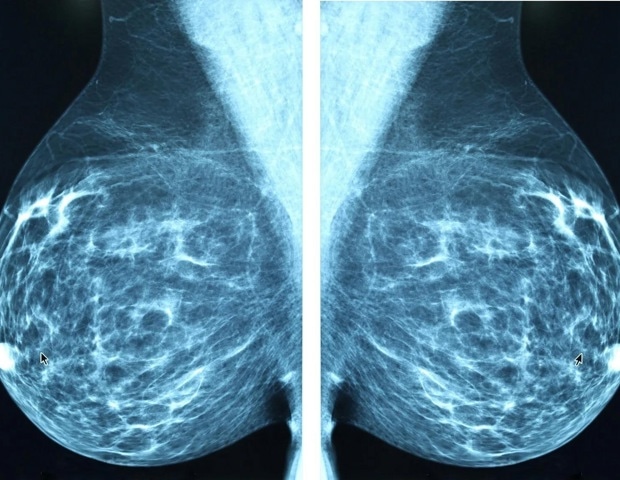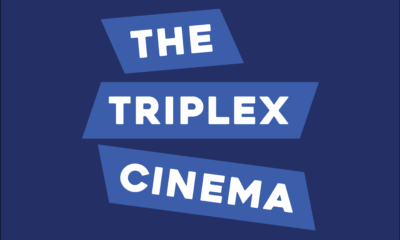Health
Researchers Develop Sugar-Coated Nanoparticles to Target Cancer

Recent research offers promising advancements in the treatment of triple-negative breast cancer, a particularly aggressive form of the disease. A team from the University of Mississippi discovered that coating nanoparticles with a sugar-like substance enhances their ability to deliver cancer therapies directly to affected cells. This breakthrough, published in the journal Advanced Healthcare Materials, has the potential to improve treatment outcomes for patients battling this challenging cancer.
Triple-negative breast cancer is defined by the absence of estrogen, progesterone, and the HER2 protein, making it resistant to many conventional therapies. According to data from the University of Mississippi Medical Center, approximately 37% of breast cancer cases treated between 2016 and 2023 were triple-negative, significantly higher than the national average. This cancer type disproportionately affects young women, particularly those from Black and African American communities, underscoring the urgent need for innovative treatment strategies.
The research team, led by Eden Tanner, assistant professor of chemistry and biochemistry, focused on the unique characteristics of triple-negative breast cancer cells. Notably, these cells overexpress glucose transporters, which are used to absorb sugars. “Essentially, it has a sweet tooth. So, how can we get it to take its medicine? We wrap it in sugar,” Tanner explained.
By encapsulating cancer therapies in nanoparticles coated with glucose, the researchers effectively trick the cancer into absorbing the medication. Mira Patel, a junior chemistry major involved in the study, described the process: “The drug itself is encapsulated in the nanoparticle, which is then coated in glucose.” Once injected into the bloodstream, these sugar-coated therapies can travel throughout the body, hitching a ride on red and white blood cells. This delivery method allows the medication to specifically target cancer cells that express high levels of glucose transporters.
Patel noted the significance of this approach, stating, “This method could provide something that will change the way we treat this cancer in the future, and in a way that won’t affect our regular, healthy cells.” With its unique mechanism, this drug delivery method could also have applications beyond breast cancer, potentially benefiting patients with other diseases that overexpress glucose transporters, such as colon cancer and fatty liver disease.
Before this innovative therapy can be applied in clinical settings, further testing in disease conditions is required. Given Mississippi’s high rates of triple-negative breast cancer, the researchers are motivated to develop solutions that can directly benefit the state’s residents. “One of our strongest motivations as a research group is to think about scientific innovations that can really help Mississippians,” Tanner remarked.
This research was supported by the National Institutes of Health under grant number P20GM130460, and its implications could significantly impact breast cancer treatment. The team’s work not only highlights the importance of targeted therapies but also addresses a pressing health concern in the region. As they continue their research, the promise of sugar-coated nanoparticles remains a beacon of hope for patients facing this challenging diagnosis.
-

 Entertainment3 months ago
Entertainment3 months agoAnn Ming Reflects on ITV’s ‘I Fought the Law’ Drama
-

 Entertainment4 months ago
Entertainment4 months agoKate Garraway Sells £2 Million Home Amid Financial Struggles
-

 Health3 months ago
Health3 months agoKatie Price Faces New Health Concerns After Cancer Symptoms Resurface
-

 Entertainment3 months ago
Entertainment3 months agoCoronation Street’s Carl Webster Faces Trouble with New Affairs
-

 Entertainment3 months ago
Entertainment3 months agoWhere is Tinder Swindler Simon Leviev? Latest Updates Revealed
-

 Entertainment4 months ago
Entertainment4 months agoMarkiplier Addresses AI Controversy During Livestream Response
-

 World2 weeks ago
World2 weeks agoBailey Announces Heartbreaking Split from Rebecca After Reunion
-

 Science1 month ago
Science1 month agoBrian Cox Addresses Claims of Alien Probe in 3I/ATLAS Discovery
-

 Health4 months ago
Health4 months agoCarol Vorderman Reflects on Health Scare and Family Support
-

 Entertainment4 months ago
Entertainment4 months agoKim Cattrall Posts Cryptic Message After HBO’s Sequel Cancellation
-

 Entertainment2 weeks ago
Entertainment2 weeks agoCoronation Street Fans React as Todd Faces Heartbreaking Choice
-

 Entertainment3 months ago
Entertainment3 months agoOlivia Attwood Opens Up About Fallout with Former Best Friend



















